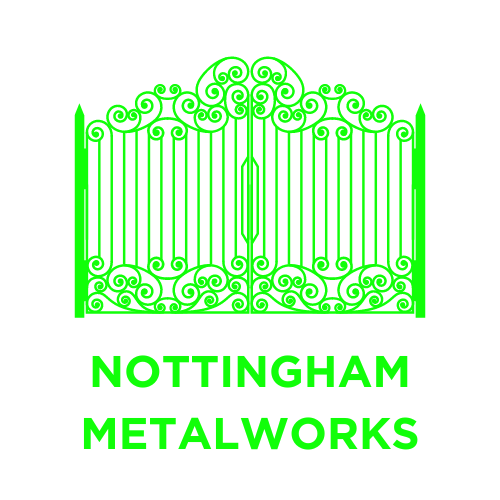Welding Nottingham
Nottingham Metalworks provides MIG Welding and TIG welding services and can also provide mobile welding across Nottingham
SEND YOUR WELDING ENQUIRY 24/7
Nottingham Metalworks welding enquiry
We will get back to you as soon as possible.
Please try again later.
Welders Nottingham
Welding is a versatile process that is used in various industries and applications. At Nottingham Metalworks our welding skills are mainly focussed on constructing items normally found in the home or garden, rather than fabricating industrial or heavy construction structural items.
With our mobile services our welding can be used to repair existing items, so this can lead to varied applications. Welding plays a crucial role in creating strong and durable connections between metal components and sometimes, making it an indispensable technique in numerous sectors.
Welding involves joining two or more pieces of metal together by melting and fusing them. The process of welding typically involves creating a high heat source, such as an electric arc or a flame, which melts the metal surface. A filler material, in the form of a welding rod or wire, is then added to the molten metal to create a bond between the two pieces. As the metal cools and solidifies, it forms a strong and durable joint. Our welders are skilled operators who understand the properties of different metals, the appropriate welding techniques, and safety precautions.
Welding Service in Nottingham
If you are looking for Welding Services in Nottingham, contact Nottingham Metalworks today to discuss your welding requirements
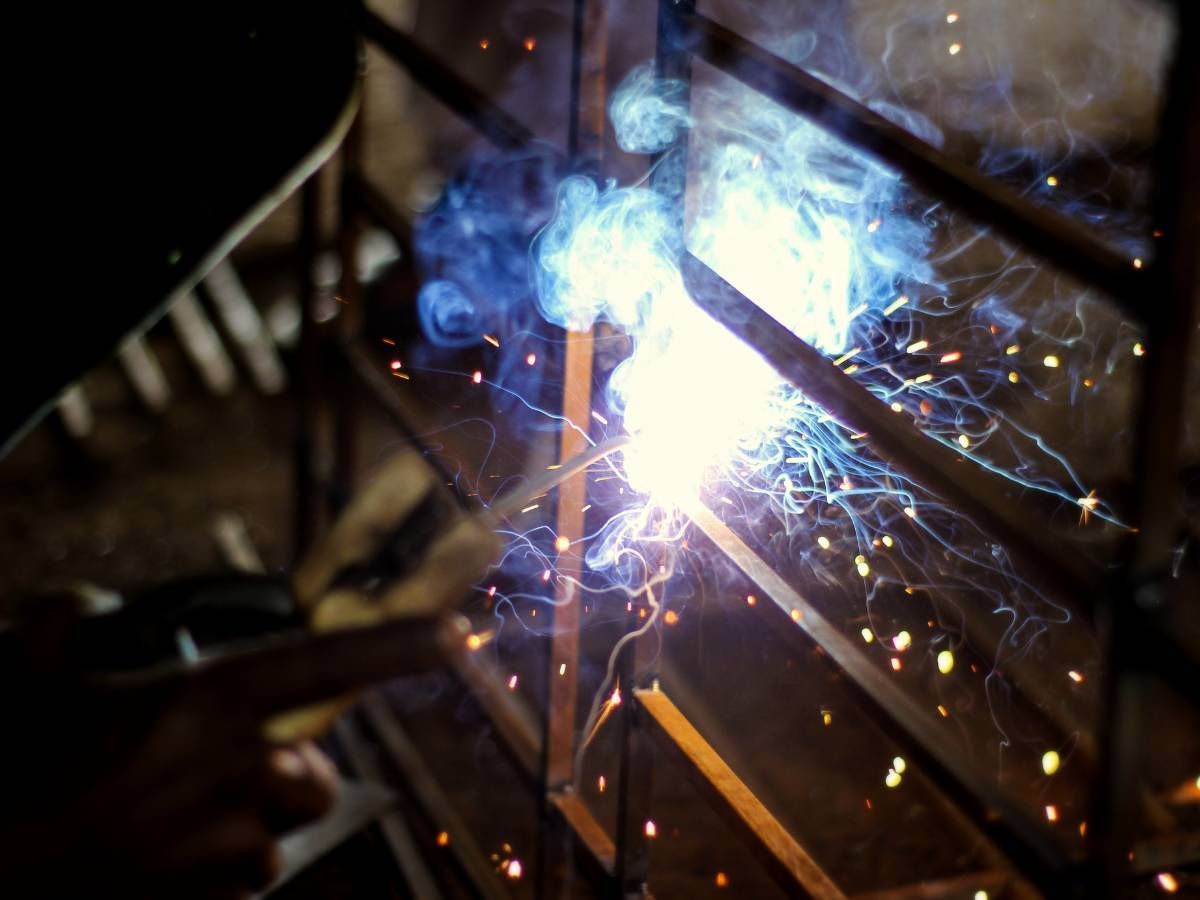
Slide title
Write your caption hereButton
MIG Welding Nottingham
MIG welding, also known as Metal Inert Gas welding, is a popular and widely used welding process. It involves the use of a continuous wire electrode that is fed through a welding gun and melted to create a weld joint.
MIG welding is known for its versatility and ease of use, making it suitable for a wide range of applications and skill levels. It is commonly used in industries such as automotive, construction, and manufacturing. MIG welding offers several advantages, including high welding speeds, good weld quality, and the ability to weld various metals and thicknesses. It is a preferred choice for many professionals and hobbyists due to its efficiency and effectiveness and is used for welding decorative wrought iron gate toppers to steel bars.
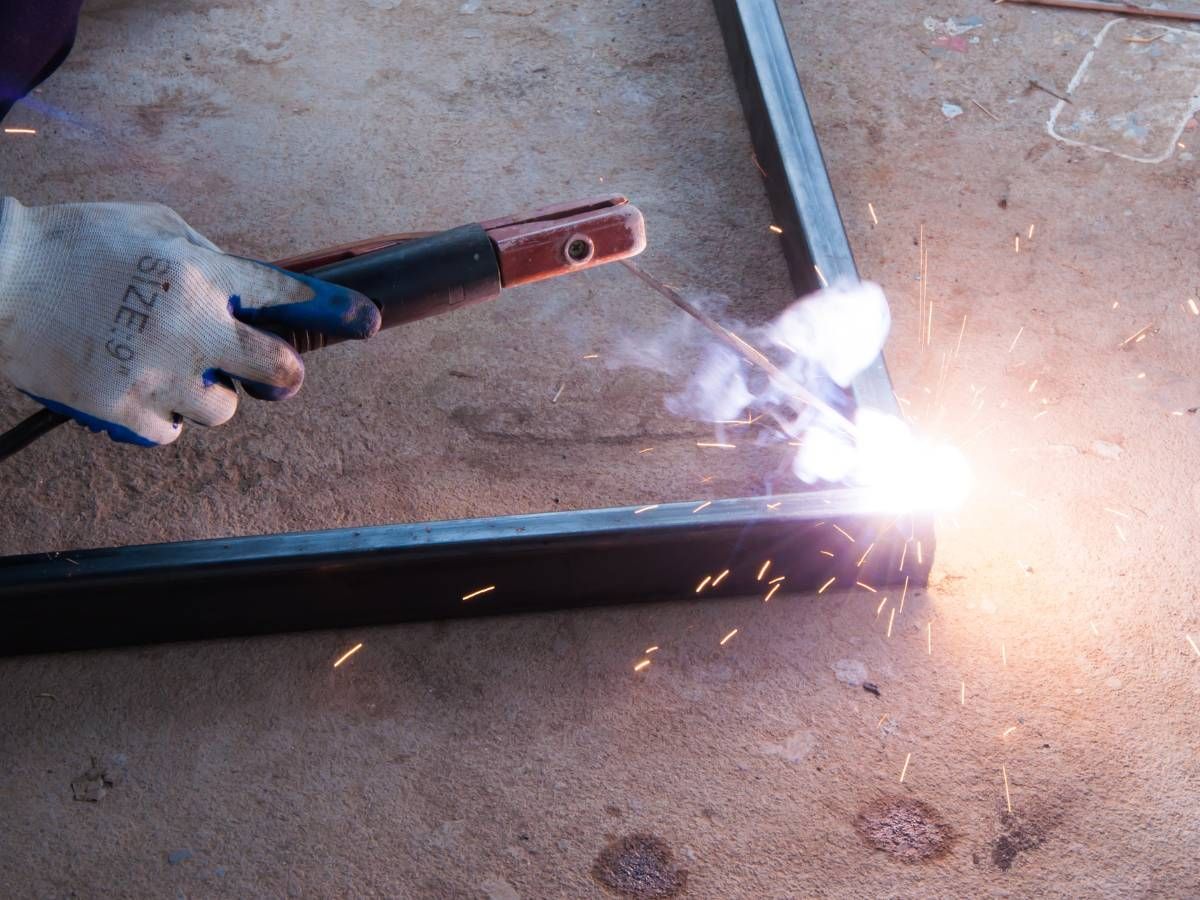
Slide title
Write your caption hereButton
TIG Welding Nottingham
TIG welding's full name is Gas Tungsten Arc Welding (GTAW), it is a popular welding technique provided by Nottingham Metalworks. It involves using a tungsten electrode to create an arc that melts the metal being welded and a separate filler material is added to create the weld joint.
TIG welding is known for its precision and versatility, making it suitable for welding a wide range of materials including stainless steel, aluminium, and copper. This technique offers excellent control over the weld pool, resulting in high-quality welds with minimal distortion. At Nottingham Metalworks TIG welding is commonly used in when making stainless steel or staircase aluminium handrails and aluminium Juliet balconies as they provide aesthetically discreet welding joints.
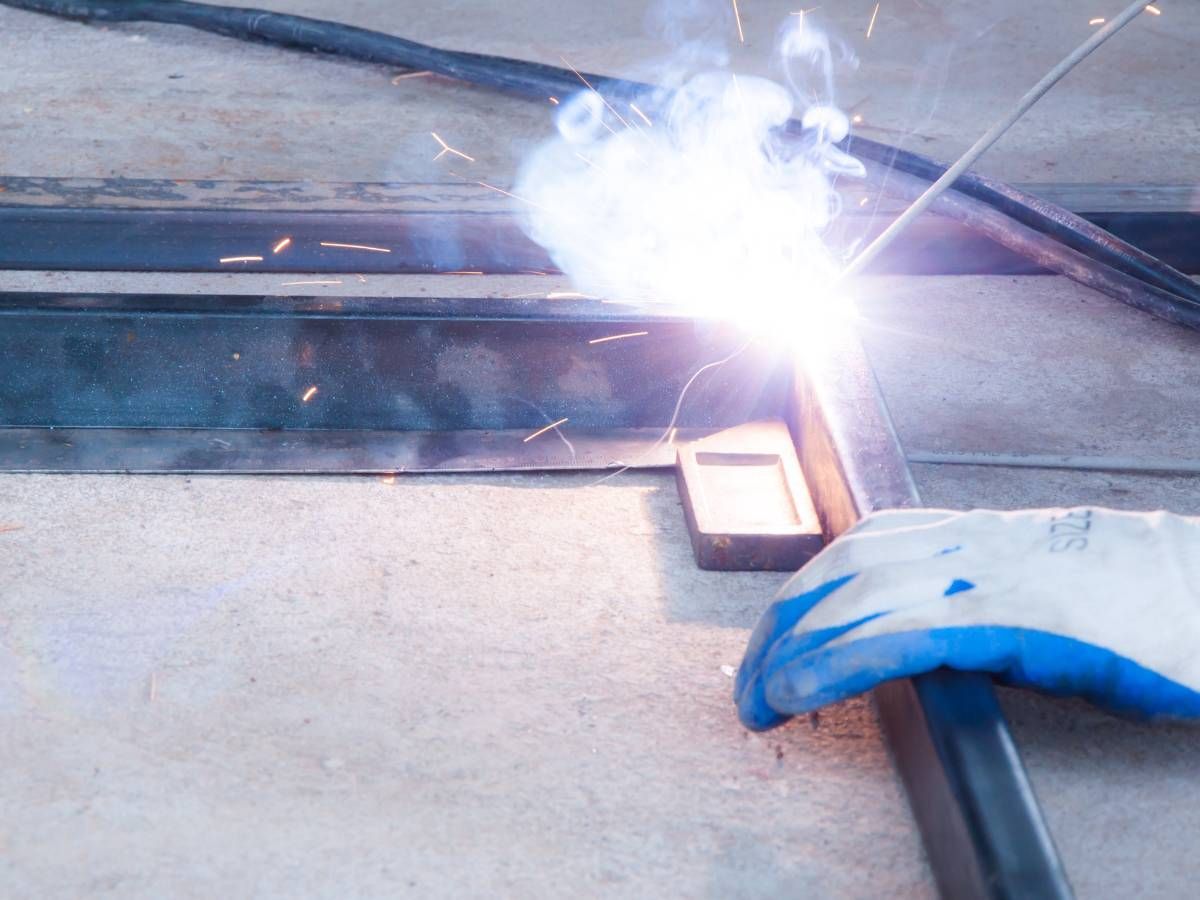
Slide title
Write your caption hereButton
Mobile Welder Nottingham
When it comes to mobile welding there are certain welding jobs that we will perform remotely but others that we do not based on a number of factors.
Aspects that will determine whether or not a mobile welding job will be taken on will depend on a number of factors such as the job itself, the location where welding is suggested to take place and the potential associated costs. The other critical aspect will be the safety of both our welder and other potential people in the vicinity as safety is always our number one concern when mobile welding. Simply get in touch to discuss what, where and when you may need our mobile welding services and we'll confirm if we can help.
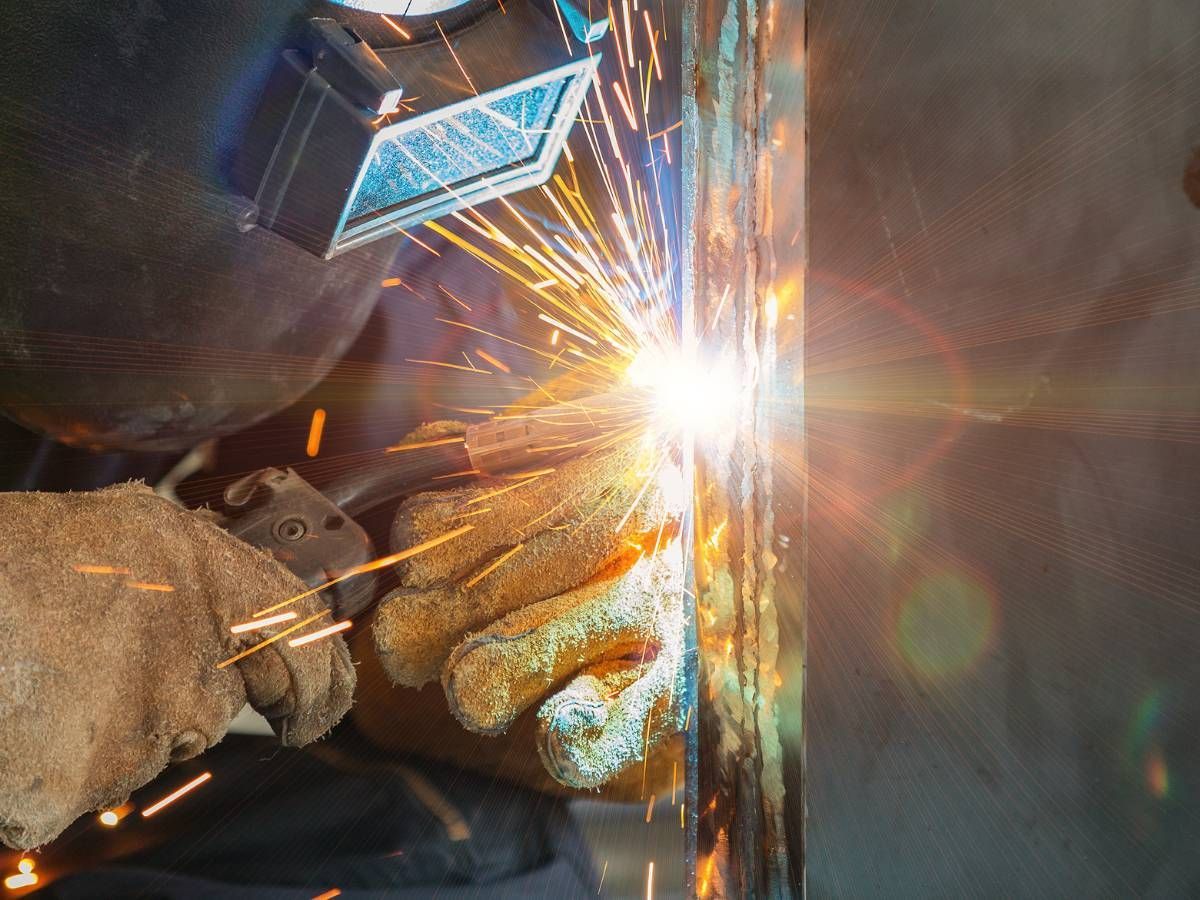
Slide title
Write your caption hereButton
Aluminium Welder Nottingham
When people look for an aluminium welder the main thing that they will really be searching for is a TIG welder, as this is the most commonly used welding technique - especially for aluminum handrails and other alumium sections and sheets. TIG welding is preferred for aluminum because it allows for precise control of the heat and ensures a clean and strong weld. With minimal distortion or defects, it an ideal choice for aluminum handrails that require both aesthetic appeal and structural integrity.
Frequently Asked Questions about Welding in Nottingham
-
Why choose Nottingham Metalworks for my welding project?
Our head welder is known in the welding trade as one of the best welders in the East Midlands and is particularly known for her TIG welding skills. As a conscientious perfectionist when it comes to welding we provide top welding services at extremely competitive prices.
-
What are the different types of welding processes?
There are several different types of welding processes, each with its own unique characteristics and applications. One common type is arc welding, which uses an electric arc between an electrode and the base metal to create a weld. This can be done using different methods such as shielded metal arc welding (SMAW), gas metal arc welding (GMAW), and gas tungsten arc welding (GTAW). Another type is resistance welding, which uses the heat generated by resistance to electric current to join two metal pieces together. This includes spot welding, seam welding, and projection welding. Other types of welding processes include laser welding, ultrasonic welding, and friction welding, each offering its own advantages and uses in various industries.
-
What safety precautions should be taken when welding?
When welding, it is important to consider the safety of both the welder and others in the vicinity - especially is carrying out mobile welding. First and foremost, it is important to wear the appropriate personal protective equipment (PPE), such as a welding helmet with a proper shade lens to protect the eyes from harmful ultraviolet and infrared rays. Additionally, welding gloves are always worn to protect the hands from heat and sparks, and fire-resistant clothing should be worn to protect the body from burns. It is also crucial to ensure proper ventilation in the welding area to prevent the inhalation of toxic fumes and gases. It is also important to have a fire extinguisher readily available in case of any welding-related fires and to be aware of the surroundings to prevent accidental fires or injuries to others. When working remotely a safety barrier will be erected to prevent other people from getting close whilst welding is done.
-
What materials can be welded?
A wide variety of materials can be welded, particularly metals such as steel, aluminium, and stainless steel. Other materials that can be welded include plastics, glass, and even certain types of wood although this is not an area we specialise in. The specific welding process and techniques used will depend on the material being welded and the desired outcome.
-
What's involved in becoming a welder?
To become a certified welder in the UK, there are several steps one must take. Our welders have gone through a welding training program that is accredited by a recognized institution the Welding Institute. These training programs typically involve a combination of theoretical and practical training, covering various welding techniques and safety procedures. Upon completion of the training program, individuals can then apply for a welding certification exam, which is usually conducted by a certifying body such as the British Institute of Non-Destructive Testing. This exam assesses the individual's knowledge and skills in welding and upon passing, they will be awarded a certification. It is also important to gain practical experience through apprenticeships or on-the-job training to enhance one's skills and increase employability as a certified welder.
Interested in our Welding services? We’re here to help!
We want to know your welding needs exactly, so that we can provide the perfect solution.
Let us know what you want welded and we’ll do our best to help.
